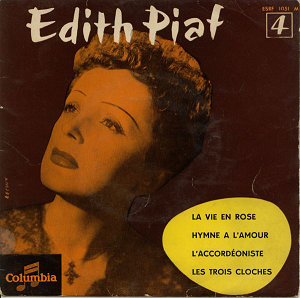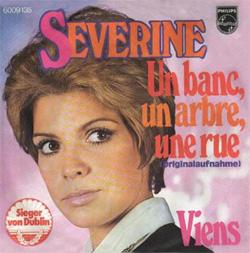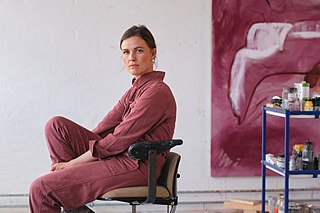
Guy Mitchell was an American pop singer and actor, successful in his homeland, the UK, and Australia. He sold 44 million records, including six million-selling singles. His best-known songs include "My Heart Cries for You", "Heartaches by the Number" and "Singing the Blues".

Tommy Seebach, born Tommy Seebach Mortensen in Copenhagen, Denmark, was a popular Danish singer, composer, organist, pianist and producer. He is best known as front man of Sir Henry and his Butlers and for numerous contributions to the Danish qualifier for the Eurovision Song Contest, the Dansk Melodi Grand Prix, which he won three times. He was the father of songwriter/producer Nicolai Seebach and singer/songwriter/producer Rasmus Seebach.
"My Heart Cries for You" is a popular song, adapted by Carl Sigman and Percy Faith from an 18th-century French melody. The song has been recorded by many singers, the most successful of which was recorded by Guy Mitchell which reached No. 2 on the Billboard chart in 1951.
"My Dreams Are Getting Better All the Time" is a 1945 popular song.
"Heartaches by the Number" is a popular country song written by Harlan Howard, and published in 1959. The sheet music was a best seller in both the US and Britain in January 1960.

"La Vie en rose" is the signature song of popular French singer Édith Piaf, written in 1945, popularized in 1946, and released as a single in 1947. The song became very popular in the US in 1950, when seven versions reached the Billboard charts. These recordings were made by Tony Martin, Paul Weston, Bing Crosby, Ralph Flanagan, Victor Young, Dean Martin, and Louis Armstrong. Harry James also recorded a version in 1950. Bing Crosby recorded the song again for his 1953 album Le Bing: Song Hits of Paris.
Til ungdommen, also known by the words of the first line Kringsatt av fiender, is a poem from 1936 by Norwegian poet and writer Nordahl Grieg (1902–1943). It was set to music in 1952 by the Danish composer Otto Mortensen (1907–1986). The song has been recorded by various artists and has been sung at meetings held by various organizations. After the terror attacks of 22 July 2011, it was used in many memorial gatherings and services.

"Un banc, un arbre, une rue" was the winning song of the Eurovision Song Contest 1971 performed in French by French singer Séverine, representing Monaco.
"Don't Blame Me" is a popular song with music by Jimmy McHugh and lyrics by Dorothy Fields. The song was part of the 1932 show Clowns in Clover and was published in 1933. Popular versions that year were recorded by: Ethel Waters, Guy Lombardo, and Charles Agnew.
Denmark participated in the Eurovision Song Contest 2002 with the song "Tell Me Who You Are" written by Michael Ronson. The song was performed by Malene Mortensen. The Danish broadcaster DR organised the national final Dansk Melodi Grand Prix 2002 in order to select the Danish entry for the 2002 contest in Tallinn, Estonia. Ten songs competed in a televised show where "Vis mig hvem du er" performed by Malene Mortensen was the winner as decided upon through two rounds of jury voting and public voting. The song was later translated from Danish to English for the Eurovision Song Contest and was titled "Tell Me Who You Are".
Lykkehjulet is the Danish version of the Wheel of Fortune television game show. Airing in 1988, the show was the first big American game show to be imported to Denmark and it was one of the first successes for Danish broadcaster TV2 when it became Denmark's second TV channel in 1988.
Denmark participated in the Eurovision Song Contest 2001 with the song "Never Ever Let You Go" written by Søren Poppe, Stefan Nielsen and Thomas Brekling. The song was performed by the duo Rollo and King. In addition to participating in the contest, the Danish broadcaster DR also hosted the Eurovision Song Contest after winning the competition in 2000 with the song "Fly on the Wings of Love" performed by the Olsen Brothers. DR organised the national final Dansk Melodi Grand Prix 2001 in order to select the Danish entry for the 2001 contest in Copenhagen. Ten songs competed in a televised show where "Der står et billede af dig på mit bord" performed by Rollo and King was the winner as decided upon through two rounds of jury voting and public voting. The song was later translated from Danish to English for the Eurovision Song Contest and was titled "Never Ever Let You Go".

Keld Heick is a Danish singer, songwriter and musician. He is best known for his contribution to the Dansk Melodi Grand Prix, where he has submitted over 30 songs.
Scroogled was a Microsoft attack advertising campaign that ran between November 2012 and 2014. Created by Mark Penn, the campaign sought primarily to attack a competing company, Google, by pointing out disadvantages and criticism of their products and services in comparison to those run by Microsoft. The original campaign focused on Google Shopping's change to a pay-per-click model, with later campaigns focusing upon Google's use of user data for targeted advertising, and the capabilities of the ChromeOS platform in comparison to Windows.
"Dunja, du" is originally a West German schlager song, written by Wolfgang Roloff and Hans Hee. In 1966, it was recorded by Ronny

Press Play On Tape (PPOT) is a Danish band that uses Commodore 64 tunes. The band formed in 1999 and has six members. The band classifies itself as a rock and bitpop band. The band's name originates from the message that the Commodore 64 computer outputs as a response to the LOAD command.

"Don't Make My Baby Blue" is a song by Frankie Laine, released as a single in March 1963. It peaked at number 51 on Billboard Hot 100. It was later covered by the Shadows, who had a hit with it in the UK.

Emily Gernild is a Danish painter and artist based in Copenhagen, Denmark.
"Det är ju dej jag går och väntar på" is a song recorded by Swedish singer Stefan Borsch for his fifth studio album, Sissi (1984). It was written by Søren Bundgaard, Keld Heick and Danne Stråhed, with production being done by Anders Engberg.







